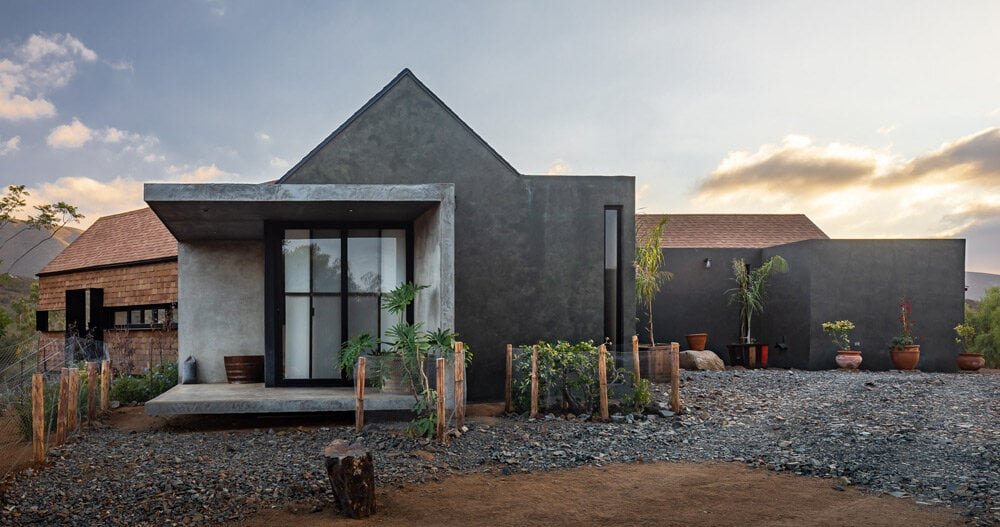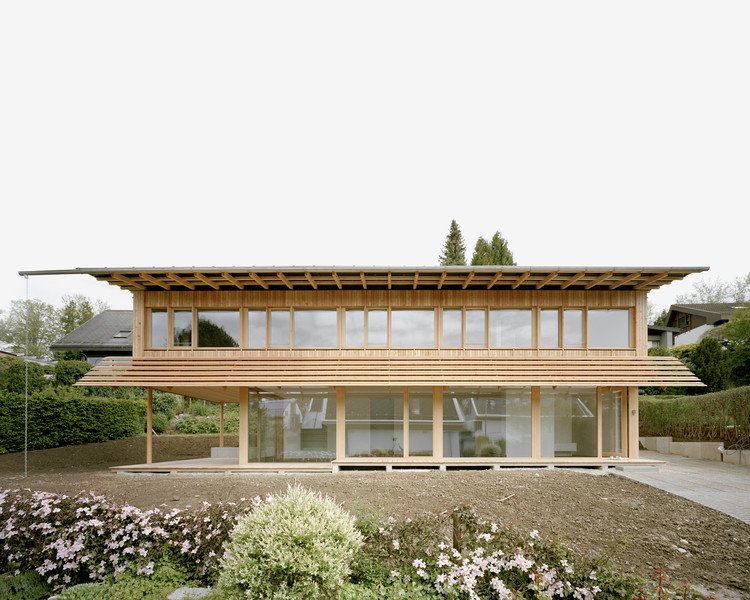casa arroyo draws from the heritage of its rural site near baja california, mexico
a new house by architect cesar mancillas
Mexico-based architect Cesar Mancillas de la Torre celebrates the completion of his Casa Arroyo, located in Valle de Guadalupe. During the house‘s initial design phase, the architect acknowledges the unique qualities of the rural context, noting that its architectural language is ‘still young compared to the rest of the country.’ Taking influence from the heritage of its site, the project mimics typical construction methods and elements which include wooden trusses, a variety of pitched roofs, porches, and foundations elevated atop stilts. Ultimately, Casa Arroyo takes shape as a contemporary re-interpretation of the area’s local vernacular.
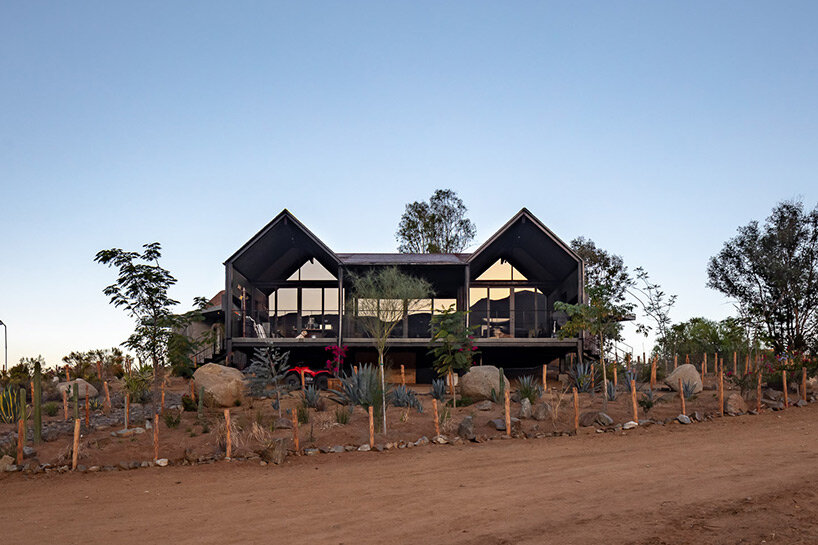 images © Onnis Luque | @onnisluque_fotografia
images © Onnis Luque | @onnisluque_fotografia
the y-shaped ‘casa arroyo’
Architect Cesar Mancillas de la Torre sites its Casa Arroyo within a vast clearing surrounded by forested hills. The house is organized as a Y-shaped volume, its entrance defining a linear axis which forks into two wings. In total, the dwelling is divided between three areas. These include a semi-public entrance leading to a terrace, a gathering area which hosts the living, dining and kitchen space, and the most private bedroom suites.
The design team explains: ‘All this composition is developed in a main floor that is connected to an underground floor that develops as a cellar. Mentioning materiality, this house is characterized by being a revival typology that emphasizes the use of an old and current architectural style. The use of wood as a representation of the traditional and concrete as the contemporary.’
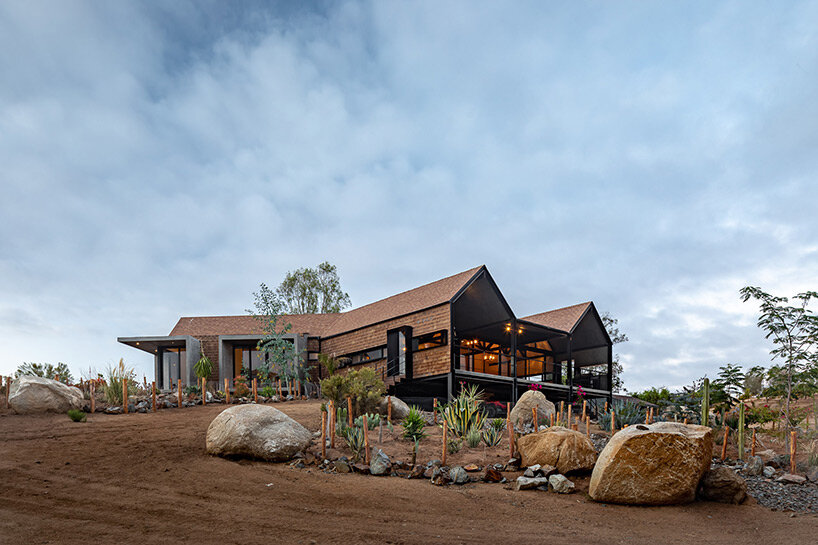
a refuge in the guadalupe valley
The architect continues, describing the design of the Casa Arroyo and the influence of its location in Valle de Guadalupe, Mexico: ‘The location gave guidelines that the use of trusses as the main construction system was appropriate to create comfort for users and a convenient thermal environment.
‘The main façade, made up of large windows and a terrace, serves as a space for family coexistence and a transition between the exterior and interior, providing views of the ecosystem of the place; a refuge in the middle of the valley of Guadalupe.’
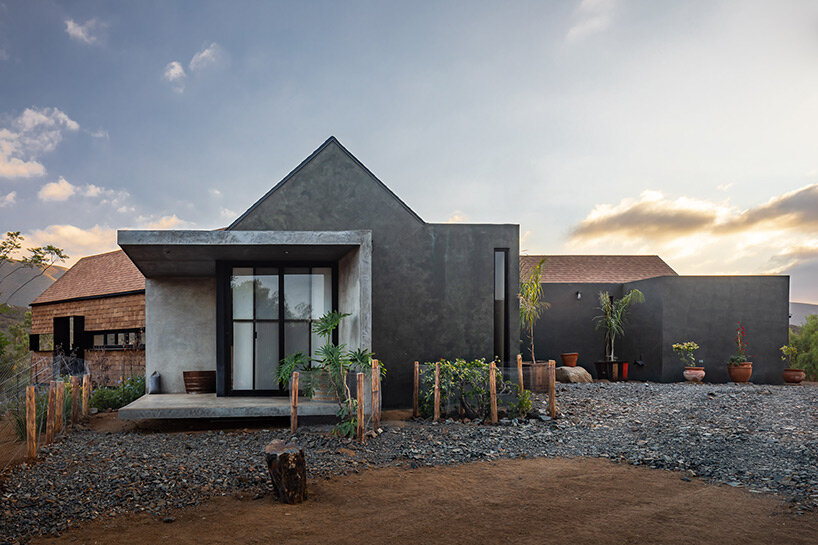
the house is a contemporary re-interpretation of the area’s local vernacular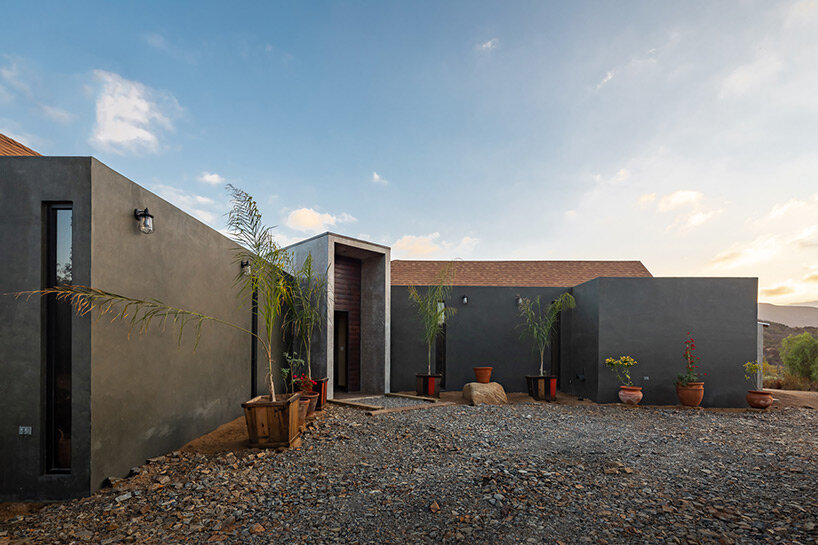
the materiality draws from traditional and contemporary influences 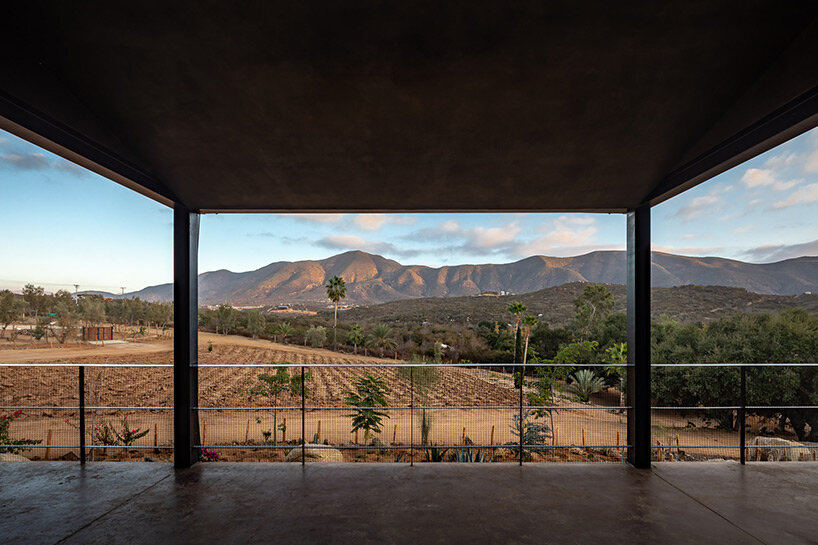 terraces open broadly toward views of Mexico’s Guadalupe Valley
terraces open broadly toward views of Mexico’s Guadalupe Valley

